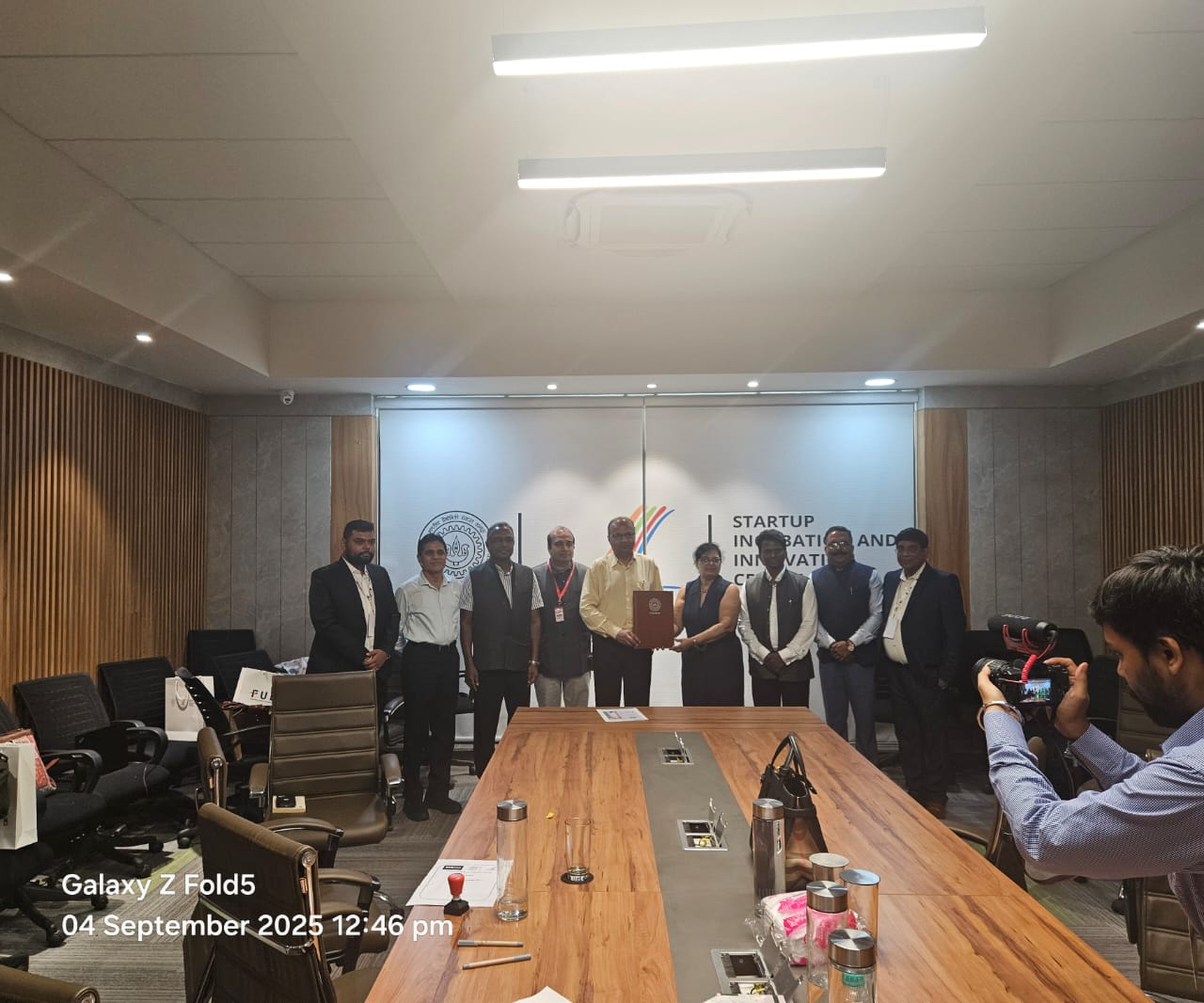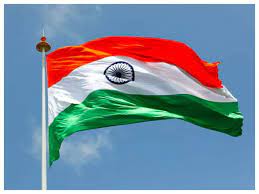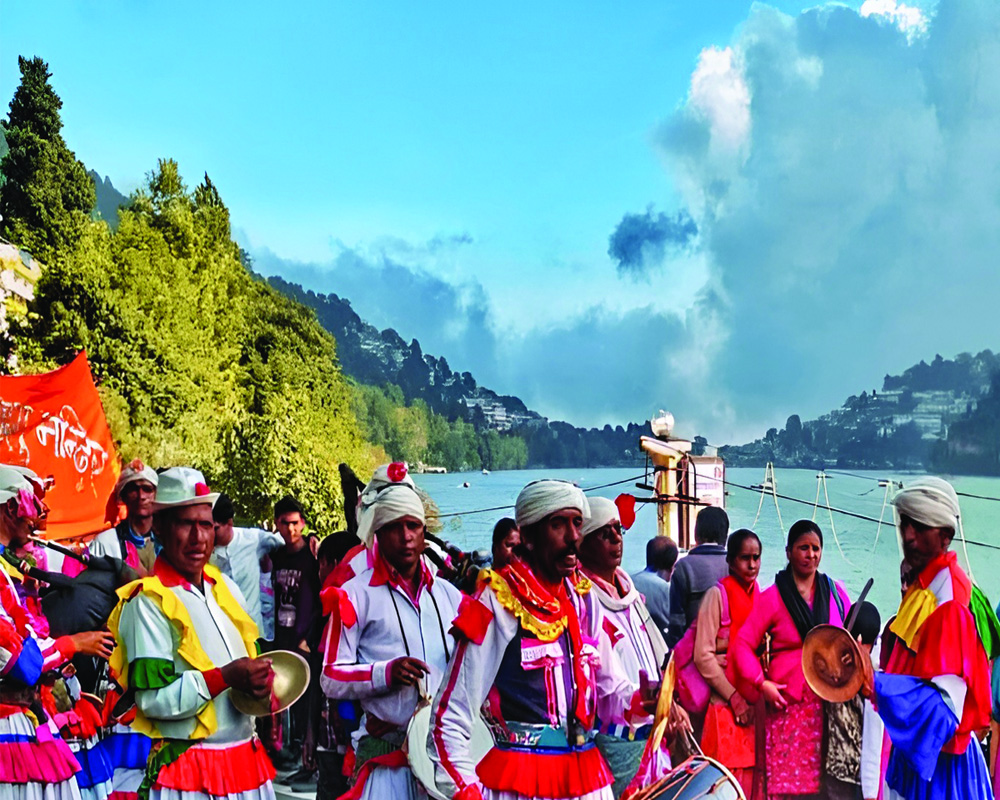On 12th January 2024, the world and India, in particular, commemorated the 161st birth anniversary of our legendary scholar, saint and spiritual leader Swami Vivekananda, famous the world over as the “Messenger of Indian Wisdom to the Western World”. Our Prime Minister Narendra Damodardas Modi, whose single greatest source of inspiration was Swamiji (and who by a strange co-incidence proudly bears the name of Swamiji “Narendra”), tweeted, “Hundreds of salutes to Swami Vivekananda, who established Indian spirituality and culture on the global stage, on the occasion of his birth anniversary and National Youth Day. His thoughts and messages, full of energy and enthusiasm, will continue to inspire the youth to do something from time to time.” Significantly, during Modi’s maiden visit to the United States as the Prime Minister of India in September, 2014, the 44th American President Barack Obama presented Modi a rare 1200 page book entitled “The World’s Congress of Religions” documenting Swamiji’s historic speeches at the Parliament of World Religions at the Chicago Art Institute in 1893 with an accompanying note saying - “This gift celebrates Swami Vivekananda's valuable contribution as a bridge between India and US and honors our two nations' shared traditions of pluralism and diversity.” Modi,who had in the days of his youth abortively tried to become a monk at the Belur Math (the Headquarters of the Ramakrishna Math and the Ramakrishna Mission in Howrah on the banks of the river Hoogly which was founded by Swamiji and where his mortal remains were consigned to flames on 4th July, 1904 in a sandalwood funeral pyre), subsequently tweeted on the occasion of Mahatma Gandhi’s 145th birth anniversary on 2nd October, 2014 that he would cherish the gift forever. Here, my mind is irresistibly drawn to Mahatma Gandhi’s historic visit to Belur Math on 12th January, 1921, on the occasion of Swamiji’s 58th birth anniversary,when he paid a most glorious tribute to Swamiji,“ I have come to pay my homage and respect to the revered memory of Swami Vivekananda, whose birthday is being celebrated today. I have gone through his works very thoroughly, and after having gone through them, the love that I had for my country became a thousand-fold.”
It was upon the hallowed soil of Gujarat that Swamiji discovered the true spiritual greatness, nay supremacy,of India. From November, 1891 when he entered Ahmedabad, to 26th April 1892 when he left Baroda for Bombay, he travelled throughout the length and breadth of Gujarat as a “parivrajaka” or “homeless wandering monk in the quest of truth” carrying only a ”kamandala” (water pot), staff and his two favourite books viz. Bhagavad Gita and The Imitation of Christ by Thomas à Kempis,the 15th Century German Catholic scholar. It was during this period of wandering in Gujarat that Swamiji’s whole outlook to life underwent a steady metamorphosis and was aptly recorded by one of his earliest biographers, “It was as though all India were pressing its life through the channels of his personality. He passed through awful upheaval. It might have been at Porbandar that this spirit took birth.” It was further recorded, “Indeed, he had become transformed into a MAN, aching with pain because of the dangers of the modern transition through which he found the whole land passing. He had turned a great patriot, his heart throbbing with love and aspiration, his whole personality afire with an intellectual struggle to solve the problems with which he found India confronted. … His mind had become a whirlwind of ideas.” The realization that he had a mission to accomplish in Gujarat came during his visit to the coastal city of Porbandar, the birthplace of Mahatma Gandhi and Sudama the strong and energetic cowherd friend of Lord Krishna. He told the Maharaja of Porbandar Vikramatji Khimojiraj that, “I have a mission to perform. But I cannot clearly see at present, how I shall begin or where it is to be!” In Porbandar, he told his brother-disciple Swami Trigunatitananda, “Sarada, now I have started to understand to some extent the Master's words. Really I have so much power in me, I feel as though I could revolutionize the world!” Thereafter, in the cell of Sri Sharada Peeth Math (the world’s largest independent women’s monastic order) at Dwarka, the City of Lord Krishna, he perceived a most powerful light - and that was the bright and luminescent future of India. During his visit to the historic Jain temples of Palitana (the world’s only mountain city that has more than 900 temples and is the most sacred place of pilgrimage of the Jain community), he saw India as one huge temple, enraptured by chapels and sanctuaries everywhere. He perceived the glory of Mahabharata, the longest epic poem ever written. Whilst beholding the ruins of the magnificent ancient temple of Somnath, which was destroyed and rebuilt several times, Swamiji felt deep inside him the indelible glory of India’s past. He came in close contact with the honorific Sanskrit scholar Pandit Shankar Pandurang, the Administrator of Porbandar, and began appreciating the teachings of Sanatana Dharma and the need to preach it to the whole wide world. As he studied the Vedas tirelessly with Pandit Pandurang in his awesome library, he became convinced that “India was truly the Master of Religions, the fountain-head of spirituality and the cradle of civilization.” Swamiji also assiduously learnt French as advised by Panditiji who said, “It will be of great use to you, Swamiji”. In fact, he even penned a letter in French to his brother disciples at Alambazar and took them completely by surprise. Pandit Pandurang told Swamiji, “I am afraid you cannot do much in this country. Few will appreciate you here. You should go to the West. Surely you can throw a great light on Western culture by preaching the ‘Sanatan Dharma.’” Thereafter,by a superb stroke of fate, Swamiji heard for the first time about the Parliament of World Religions in Chicago that was slated to be held in September 1893 and which changed the entire course of his life. Significantly in Gujarat, both his mental and physical prowess got a new spurt of divine energy. His fellow disciple Swami Akhandananda wrote in his memoirs, “I at last reached Mandvi. I saw that there was a great change in his appearance. His presence illumined the whole room.” Here in Gujarat, after being rescued by the Thakore Saheb of Limbdi from the awful clutches of the treacherous Sadhus, Swamiji was embued with a new life. Swamiji came in close contact with some of the most prominent princes, diwans, scholars and eminent personalities of Gujarat. All of them became his great friends and fans and some of them even became his devoted disciples. Reaching Junagadh at the foot of the Girnar hills and famous for the iconic early 19th Century Shri Swaminarayan Temple, Swamiji became the guest of Haridas Viharidas Desai, Diwan of Junagadh, and later he stayed with Chhaganlal Pandya, who was the Manager in the Diwan’s office. Diwanji became so much deely attached to Swamiji that even after Swamiji had left Junagadh, he continued to keep in close touch with him. Diwanji found in Swamiji a unique personality and teacher and Swamiji in turn paternally oved and respected him - the difference in their age was 22 years! This will be more than evident from the inspiring and letters of Swamiji addressed to Diwanji. Swamiji wrote to Diwanji from Bombay on 22nd August, 1892:
“The world is enriched by men, high souled, noble-minded and kind like you, ‘the rest are only as axes, which cut at the tree of youth of their mothers’ as the Sanskrit poem puts it.”
Again, he wrote from Khetri in May, 1893 :
“Believe me that I love you and respect you like a father and that my gratitude towards you and your family is surely unbounded … my dear Diwanji Saheb, I am the same frolicious, mischievous but I assure you, innocent boy you found me at Junagadh and my love for your noble self is the same or increased a hundredfold because I have had a mental comparison between yourself and the Diwans of nearly all the States in Dakshin and the Lord be my witness how my tongue was fluent in your praise (although I know that my powers are quite inadequate to estimate your noble qualities) in every southern court.”
A friend in need is a friend indeed! Swamiji magnanimously helped Diwanji to overcome his manifold problems. He wrote from Poona on 15th June, 1892, “Perhaps by this time every hitch has been removed from your way in Junagadh, at least I hope so”. Again when Diwanji was in distress, Swamiji wrote to him from Bombay on 22nd May, 1893:
“Often and often we see that the very best of men even are troubled and visited with tribulations in this world. It may be inexplicable but it is also the experience of my life that the heart and core of everything here is good, that whatever may be the surface of waves, deep down and underlying everything, there is an infinite basis of goodness and love and so long we do not reach that basis we are troubled but once reached that zone of calmness, let winds howl and tempest rage, the house which is built upon the rock of ages cannot shake. I thoroughly believe that a good, unselfish and holy man like you whose whole life has been devoted in doing good to others has already reached the basis of firmness which the Lord himself has styled as ‘rest’ upon Brahman in the Gita. May the blows you have received draw thee closer and closer to that Being who is the only one to be loved here and hereafter so that you may realise him in everything past, present and future and find everything present or lost in Him and Him alone.”
Swamiji’s biographer Mahendranath Dutta narrates a fascinating incident in his Bengali book “Srimat Swamijir Jeevaner Ghantanabali”. “While Swamiji was staying with the Diwan of Junagadh, Swamiji saw him depressed. On being asked about the reason, Diwanji at first hesitated but then said, ‘There is a letter from British Government from Bombay to the Nawab of Junagadh; I am worried as to what reply I should give because I am appointed by British Government and on the other hand I am an employee of Nawab. I cannot afford to displease either of them and I am, therefore, in a great dilemma.’ Swamiji did not speak a word, just took up a paper and started scribbling something. After some time he told Diwanji, ‘Will this letter do?’ Diwanji was extremely astonished and exclaimed ‘This is just the type of letter I wanted to send!’ Immediately he made out a copy of the letter and sent to Bombay. Diwanji became highly impressed with the practical wisdom of Swamiji.”
At Junagadh, Swamiji also met the extraordinary Ayurvedic physician Jhandu Bhatt of Jamnagar about whom he said, “I had been to many places and have seen many beautiful persons, but nowhere have I seen a generous man like Jhandu Bhatt Vithalji.” In and around Junagadh, Swamiji saw many ancient monuments and ruins—the wondrous Uparkot Fort, believed to have been built in 319 BC by the Mauryan emperor Chandragupta, an ancient Rajput palace converted to a mosque by Mahmud Begada, the most prominent Sultan of the Gujarat Sultanate, two ancient wells, the Khapra Khodia Buddhist caves, the “Ashoka Shilalekh” in which the edicts of Emperor Ashoka and of the other emperors are artfully etched on stone and many other places of historical importance. While travelling through the Great Rann of Kutch, Swamiji had a miraculous experience of actually witnessing a mirage with his own eyes. In a lecture delivered at the famed Thousand Island Park in New York in 1896 entitled “The Real and the Apparent Man”, Swamiji described the phenomenon, “One day I was very thirsty and wanted to have a drink of water, so I started to go to one of these clear, beautiful lakes, and as I approached, it vanished. And with a flash it came to my brain, ‘This is the mirage about which I have read all my life’..The next morning I began my march. There was again the lake, but with it came also the idea that it was the mirage and not a true lake. So is it with this universe. We are all travelling in this mirage of the world day after day, month after month, year after year, not knowing that it is a mirage. One day it will break up, but it will come back again; the body has to remain under the power of past Karma, and so the mirage will come back.” With the princes and diwans in Gujarat, Swamiji not only animatedly discussed philosophy and religion, but also myriad important economic and political problems confronting the world and the nation. He gave them valuable practical advice and even went to the extent of drafting diplomatic letters for them with amazing elan. Though Swamiji scrupulously stayed away from politics, his close association with the princes and diwans in Gujarat created considerable waves and attracted the ire of the ever-watchful eyes of British Intelligence! Thus, the ceaseless wanderings of Swamiji in Gujarat constituted the most significant period of his whole spiritual life!
BRIEF NOTE ON THE AUTHOR
The author is an internationally reputed senior lawyer practising in the Supreme Court of India and various High Courts and Tribunals in India. He addressed a select gathering of MPs and other eminent persons in the House of Lords in February 2009 and was awarded the prestigious “Ambassador of Peace Award”. In April 2009, he was also invited to the House of Commons. He was also invited by Chatham House and by the Universal Peace Federation in London several times. He is an avid debater, public speaker, writer, broadcaster, telecaster, artist, painter, sculptor, music critic and filmmaker.








 OpinionExpress.In
OpinionExpress.In















Comments (0)